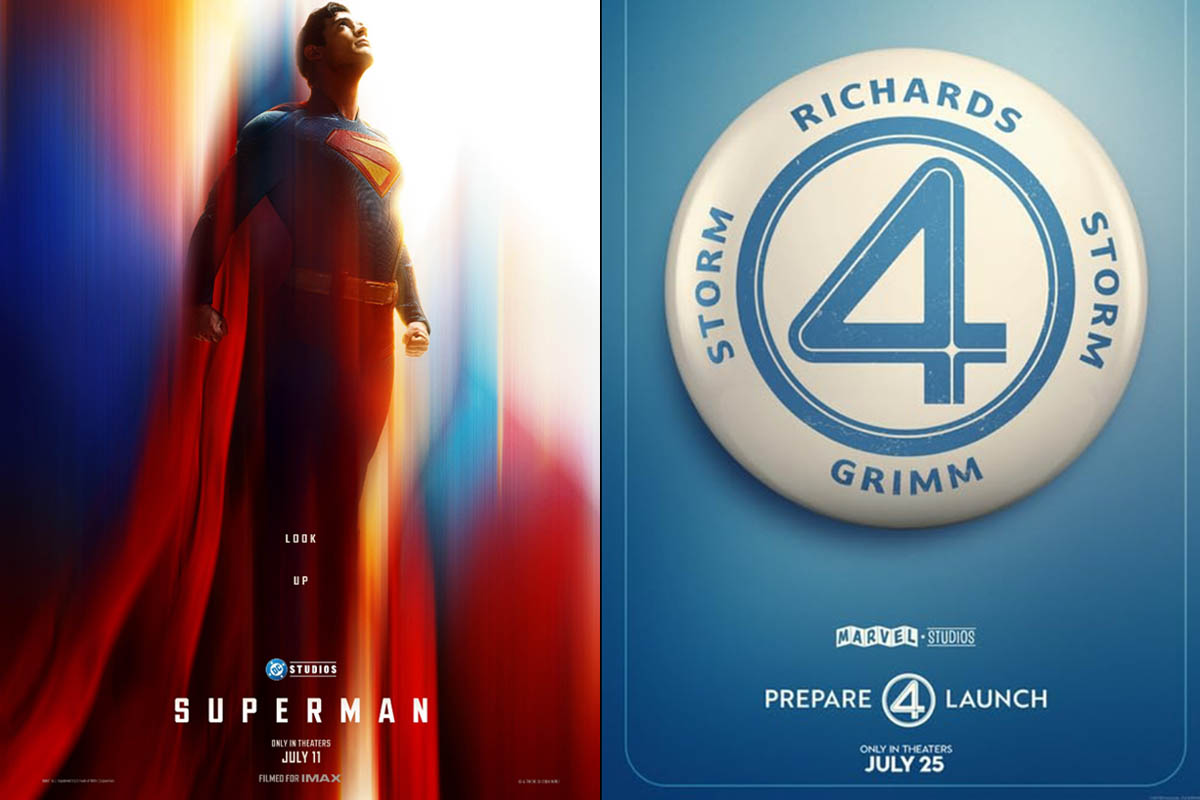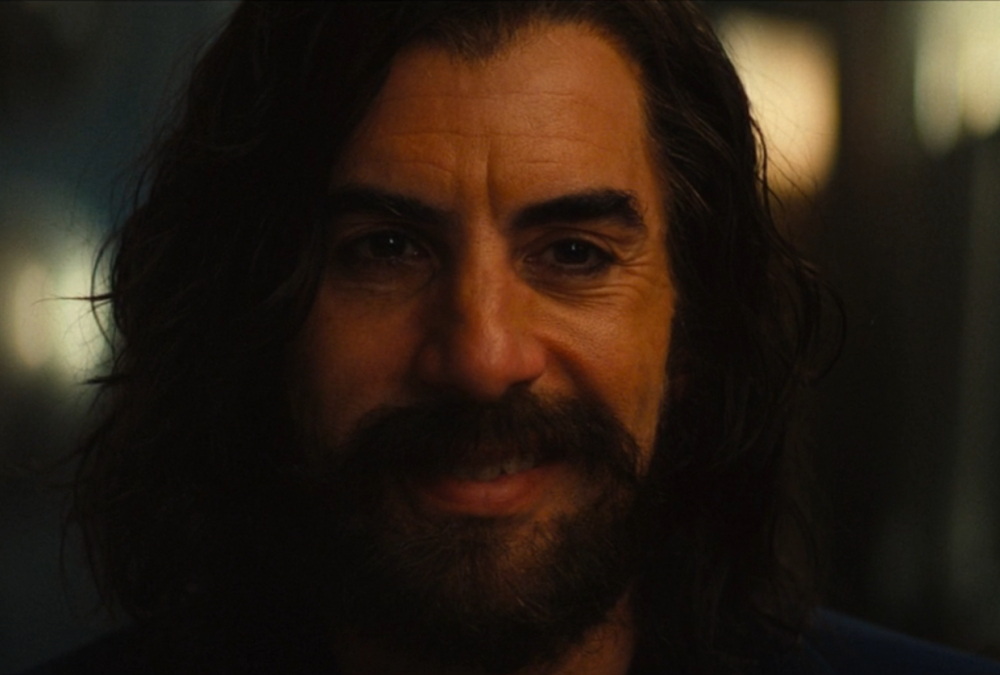![]()
What I love most about international film festivals is the opportunity to discover rare gems and stimulating foreign indie flicks, which may otherwise get lost in the mainstream blockbuster shuffle. One of this year’s contenders is a compelling Brazilian slave drama, set in the isolated backlands of this lush country, in the early 19th century during its painfully colonial times. Vazante is tragic story of slave trader Antonio, who in the event of losing his wife in child labor marries his late wife’s 12-year-old niece.
While waiting for his child wife to mature and irritated by a lack of diamond production in the Diamante Mountains, Antonio is advised by one of his foremen to cultivate and farm his vast rugged land with his captive slaves. Isolation, fear, violence, betrayal and prejudice are all at the premise of this beautifully shot black and white film, with minimal dialogue and score. One particularly unforgettable visual, is the powerful opening sequence in which we see the protagonist walking barefoot through a rainy muddy jungle, with his captured group of slaves, shuffling along in their shackles. This was far more potent than any violent or torture scene that one may have envisioned from a film such as this.
Daniela Thomas, the director and co-writer of the film has unabashedly captured the essence of Brazilian history with a personal story, which stems from her very own roots. Much like her creative collaboration on the Rio Olympics opening ceremony, Thomas isn’t afraid to embrace the truth and confront her history head on with a creative and poignant approach. LRM had the pleasure of sitting down with the delightful director at the Berlinale film fest this past week, to talk about her latest film Vazante, child marriage, forced co-habitation, slavery, Brazilian history and its imminent future. See below what she had to say below.
LRM: Can you talk about the inspiration for the film and how the storyline developed?
Daniela Thomas: My father told me a story about family. A great great great — I don’t know how many generations back, uncle of his. Was 25 years old and married a girl of 12. The story goes that she menstruated only three years at 15. He waited to consummate the marriage until she menstruated. He used to be like the character in the film, he would come back from his travels and bring her dolls.
I found this at the same time appalling and fascinating, grotesque and fascinating….the fact that it was acceptable, the fact that she had to endure this. My father, he loves to say that he never wore shoes. He would come home and he would pick [the] soles of his feet to take the gravel from the creases. I found that image so on point.
My desire always was to try to understand where we come from. Like what’s our Adam and Eve, what is this mixture that is Brazil. The question of an identity fascinates me. This was the means to get to that — to be able to think about that time and to be able to picture how this is a miscegenation in Brazil to happen on the borders of social life. Not at the center. It wasn’t a legal act but it happened in insidious ways.
LRM: You’re saying that basically the film started from these little stories, from these images and you can find all those images in the film as well. Did the script grow organically from the images?
Daniela: Absolutely. It’s exactly that. I started from these images, I started from these desires and I tried to make a story that would create a means of getting– plunging into that time. There’s an effort, manic effort to recreate the flavor, the time, the tedium, the… harshness of life.
![]()
Courtesy of Berlinale
LRM: Is that why you chose to film it in black and white? Also, the dialogue is so minimal. I think that really brings out the visual even more. Was that intentional?
Daniela: Yes. From the other side of my family, I descend from farmers in Minas. The same area where the film was– more or less the film was shot. They are very dry people. They use words minimally and they spend maybe– my grandfather and grandmother spend days without exchanging words. She was doing her crochet or knitting. He was about his business and barely said good morning. One of the major films in Brazil, major, is Vidas Secas, dry lives…by Nelson Pereira based on a book by Graciliano Ramos, which is a book about the impossibility of communicating because it came out even — the words to express your feelings, lack of access in your own being. How to access a word, how to express yourself. This also fascinates me. I’m full of all that.
LRM: Is it the matter of education, so to speak? Or is it something that actually comes from inside the people?
Daniela: I think it’s a combination…but it is no access to education. A basic disrespect for one another because blacks don’t matter, so there’s nothing to exchange there. Also, this predisposition, two sides. That’s where each wrinkle in each quivers of a stone starts to pull that out.
LRM: I wanted to ask you about that extremely powerful opening sequence because — and I’m sure I’m not the only one when the film first opens and you see the shuffling of the feet and the shackle; it is a very devastating reality but it is a reality. It’s history. I love that you tell it like it is, very much the way you took on your creative approach in the Olympics in Rio. Can you talk about creating that scene? How that made you feel because, I had chills watching it.
Daniela: You have to imagine me going to this refugee hostel in São Paulo, talking to these guys from Mali and Burkina Faso and telling them, “We’re going to do this film.” I brought them images that even — I begin to cry when I say, “I brought them images of the torture of black people that we have, we’ve seen [in Brazil], even images from Congo. I show them and I said, “We will have to do this. Are you up for it? Because we’re going to be chained. If there is no chains, I’m not happy, okay?”
LRM: It’s psychological.
Daniela: It was psychological.
Daniela: I tell you what. The guys said, “If we are going to make this film, we have to make a point.” For example, they didn’t want to protect their feet or even cover themselves. It was cold in the rain. They took it on. They decided that this is the most important thing they’ve do in their lives to show what their people, their great grandfathers went through.
![]()
Courtesy of Berlinale
LRM: Did anybody break down and cry? Did anybody get emotional while filming?
Daniela: No, no. Emotional, but hurts. I mean like angry, upset. Luana (the actress who plays the child bride) was saying– Luana felt for them very much. When she saw him [the slave] hanging on the wall, she couldn’t believe it. She was 11 when she filmed.
LRM: Can you talk a little about your style of filmmaking.
Daniela: I love cinema. I’m a sucker for cinema since I was a child. When I was nine years old, my uncle — uncle’s are — I don’t know why that’s so important nowadays [laughs] for me. He took me and he was only five years older than I am and he asked my mother if he could take me to see the film when I was nine. We went to see, the two of us, went to see 2001- I haven’t overcome this — The things that most fascinated me then was like this, “I can have doubts. A story doesn’t have to be told in the beginning, middle or end. It’s fascinating to not know what it means. My doubts are incredible.” Ever since that time, I have seen 200 times [Werner] Herzog. I have seen endless times [Terrence] Malick. I don’t know how many times. I’ve seen all of this.
LRM: Watching your film felt like we were actually in that time period. I also liked that you did include a lot of violence like 12 Years of Slave, for example.
Daniela: I don’t think slavery is about individual acts of taboo. Slavery is the banality of evil…Blacks are treated in the same way as a horse, a working horse is. So if it doesn’t behave, you’re going to chastise him so that he does it right. So, I didn’t want people– because I think that films because of– I don’t know, whatever, dramaturgical reasons or whatever, there is a sexual perversion. Having a white man hurt a black man. It seems like it’s a problem between the two of them or some disguised perversion. No. In my film, the guy doesn’t even bother. He says, “Go, chain himâ€. He doesn’t have to say. The guy even says to him, “He is going off chainsâ€. It’s banal. That’s what you just do. So, it’s not a film about the sexual act of violence.
LRM: The punishment?
Daniela: The banality of the cruelty, the day-to-day cruelty.
LRM: I really enjoyed the way that you told the story, and that you left it open-ended in the end as well. What about the music?
Daniela: The texture is sound but when are you there, you realize there is no silence in nature. In Brazil there no silence, not a moment in the day.
I didn’t want to adulterate. I didn’t want to interpose my desires because music connotes. Music says, “This is how you should see this scene,†and I wanted us to make that operation without me forcing one direction or another. I did that in every place, art direction, not choosing color, for example.
LRM: What do you have coming up or do you have any passion projects that you have in the works?
Daniela: I have another film ready to roll, to deliver. It’s a completely different piece. It’s like it’s almost by another director. It’s funny because there’s a dinner here. It’s a film that I wrote about a dinner, that happens inside of one house, one-room directed in real time. It’s a two-hour film. The action happens in these two hours with eight people talking endlessly.

 FOR FANBOYS, BY FANBOYS
Have you checked out LRM Online’s official podcasts and videos on The Genreverse Podcast Network? Available on YouTube and all your favorite podcast apps, This multimedia empire includes The Daily CoG, Breaking Geek Radio: The Podcast, GeekScholars Movie News, Anime-Versal Review Podcast, and our Star Wars dedicated podcast The Cantina. Check it out by listening on all your favorite podcast apps, or watching on YouTube!
Subscribe on: Apple Podcasts | Spotify | SoundCloud | Stitcher | Google Play
FOR FANBOYS, BY FANBOYS
Have you checked out LRM Online’s official podcasts and videos on The Genreverse Podcast Network? Available on YouTube and all your favorite podcast apps, This multimedia empire includes The Daily CoG, Breaking Geek Radio: The Podcast, GeekScholars Movie News, Anime-Versal Review Podcast, and our Star Wars dedicated podcast The Cantina. Check it out by listening on all your favorite podcast apps, or watching on YouTube!
Subscribe on: Apple Podcasts | Spotify | SoundCloud | Stitcher | Google Play



